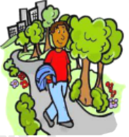
�������Ǵ����������ڵ�ѧУ���ٰ�һ��Ӣ���ݽ������������ǡ���δ������鼮���� �����������Ϣ����Ӣ��дһƪ���Ը壬���μӱ�����
�ҵij��� | �Ѿ��鼮���ϣ������ |
�ҵ����� | ��1�� ��������˵�����鼮���ܲ������ã� ��2�� ���ǣ��Ѿ��鼮�ӵ�ȴ����һ���÷��� |
�������ĺô� | ��1�� ���Խ�Լ��Դ�������˷ѣ� ��2�� ��������ͥ���ѵ�ѧ����ʹ���ǿ�����Ұ�� ����֪ʶ�� ��3�� ʹ����ѧ��ذ����ˣ� ��4�� ����������һ�����ɣ� |
�ο��ʻ㣺deal with ���� Project Hope ϣ������ resource��Դ
Ҫ��
��1��������80��100 ����
��2�����Ŀ�ͷ�Ѹ������������ܴ�����
��3��Ҫ����ȫ���������ᣬ���ʵ����ӡ�
Dear friends,
How do we deal with old books after we read them?
_____________________________________________________________________________________________________________________________________________________________________________________________________________________________________________________________________________________________________________________________________________________________________________________________________________________________________________________________________________________________________________________________________________________________________________________________________________________________________________________________________________________________________________________________________________________________________
 �¿α�����Ķ�ѵ��ϵ�д�
�¿α�����Ķ�ѵ��ϵ�д�
| �꼶 | ���пγ� | �꼶 | ���пγ� |
| ��һ | ��һ��ѿγ��Ƽ��� | ��һ | ��һ��ѿγ��Ƽ��� |
| �߶� | �߶���ѿγ��Ƽ��� | ���� | ������ѿγ��Ƽ��� |
| ���� | ������ѿγ��Ƽ��� | ���� | ������ѿγ��Ƽ��� |
��Ŀ������Ӣ�� ��Դ��2020���Ϻ��г��������꼶������أ���ģ��Ӣ���Ծ� ���ͣ�����ƥ����

A B C D




E F G H
1. 2. 3. 4. 5. 6.
�鿴�𰸺ͽ���>>
��Ŀ������Ӣ�� ��Դ��2020���Ϻ��б�ɽ���п���ģӢ���Ծ� ���ͣ��������
We all know vacations (����) are good for our health. But which kind of vacation is better: one long vacation or several short ones? Here is information from research studies about the benefits (�ô�) of each kind of vacation.
The benefits of a long vacation
International travel has big benefits. For example, people who travel abroad are more c1. when they come home. When people visit other countries, they discover different ways people live. This results in more ways of thinking and better problem solving.
Some studies show that people do not sleep well until day two or three of their vacation. After day two or day three, they sleep well for the w2. vacation. They also sleep well for one week after the vacation. A long vacation means better sleep for more days.
Traveling on vacation can be stressful. It takes time and money to travel. If you have a long vacation, you get more days of relaxation for your days of travel stress.
If there is a problem at work during your vacation, your coworkers (ͬ��) are more likely to take care of the problem. They are not likely to wait for you. The result? You have l3. work when you come back. The benefits of short vacations:
Studies discovered that people enjoy p4. their vacation as much as they enjoy taking the vacation. If you decide to take your short vacations a year, you can experience the fun of making arrangements for four different times.
Many people do not call the office during a short vacation. People on long vacations are more likely to check email and worry about work. For example, France has the highest number of vacation days (an average of 30 days a year). It a5. has the highest number of people (93%) who check their work email.
Vacations improve our a6. to our lives, our families, and ourselves. When we get back to work, we quickly forget all those positive (������) feelings. Taking several short a year helps you feel positive about your life more often.
We are busy all the time. It is difficult to find a complete week when everyone can go on vacation. A short vacation is easier to fit in to our busy s7. . The busier we are, the more important it is to connect with friends and family on vacation.
�鿴�𰸺ͽ���>>
��Ŀ������Ӣ�� ��Դ��2020���Ϻ��б�ɽ���п���ģӢ���Ծ� ���ͣ���ѡ��
The hotel wasn't good enough indeed, but I ________ in many worse ones before.
A.stayed B.would stay C.had stayed D.were staying
�鿴�𰸺ͽ���>>
��Ŀ������Ӣ�� ��Դ��2020���Ϻ��б�ɽ���п���ģӢ���Ծ� ���ͣ���ѡ��
The professor is careful. He always asks ________ some questions before making a decision.
A.he B.him C.his D.himself
�鿴�𰸺ͽ���>>
��Ŀ������Ӣ�� ��Դ��2020��������Ͽ������꼶��ѧ�ڽ���ϰ��һģ��Ӣ���Ծ� ���ͣ���ɾ���
��ʵ�ϣ�������ûȥ��ѧ��
________ _________he didn��t go to school yesterday.
�鿴�𰸺ͽ���>>
��Ŀ������Ӣ�� ��Դ��2020��������Ͽ������꼶��ѧ�ڽ���ϰ��һģ��Ӣ���Ծ� ���ͣ��������
Julia Hill, an American woman, found out that a company wanted to cut down part of a forest in California. There were lots of redwood trees in the_______. One of the trees was 70 metres tall and about 1,000 years old.
Julia wasn��t _______ about this. She went to California and climbed up the tree. ��If I sit in the tree,�� she said, ��the company can��t cut it down.�� At the beginning, Julia planned to stay in the tree for two weeks. She_______ in a small tree-house and her friends were very helpful �� they made _______ for her every day. She used her _______ to talk to her family and to news reporters (����). She stayed in the tree_______.
Many people helped her, but other people didn��t. They tried to_______ her. The company used a helicopter (ֱ����) to stay near her tree-house for a long time. The helicopter was very _______ and there was a lot of wind. Julia didn��t like it, but she stayed in the tree.
In the end, she was_______. The company told her that they wouldn��t cut down the redwood. Finally, after two years and eight days in the tree, Julia Hill climbed ________ and walked on the ground again. She and her friends were very happy.
1.A.city B.town C.forest D.country
2.A.excited B.happy C.wonderful D.careful
3.A.slept B.studied C.worked D.lived
4.A.food B.money C.friends D.music
5.A.tape B.board C.mobile phone D.camera
6.A.for a time B.every time C.now and then D.day and night
7.A.believe B.stop C.change D.excuse
8.A.noisy B.heavy C.high D.safe
9.A.rude B.angry C.hungry D.successful
10.A.up B.down C.in D.out
�鿴�𰸺ͽ���>>
��Ŀ������Ӣ�� ��Դ��2020��������Ͽ������꼶��ѧ�ڽ���ϰ��һģ��Ӣ���Ծ� ���ͣ������Ի��ش�����
��һ�β��ϣ��ش����漸��С �⡣
1.What is Peter doing?
A.He is interviewing Jenny.
B.He is having an English class.
C.He is giving advice.
2.How many animals has Jenny got?
A.Three. B.Five. C.Seven
3.What do we know from Jenny��s talking?
A.She��s busy at home every day.
B.She loves animals and looks after them well.
C.Her parents don��t allow her to have pets.
�鿴�𰸺ͽ���>>
��Ŀ������Ӣ�� ��Դ��2020������б�ҵ��ѧҵ����ģ�⣨һģ��Ӣ���Ծ� ���ͣ���ѡ��
I have some problems with my English writing. Can you give me some ________?
A.advice B.decisions C.information D.messages
�鿴�𰸺ͽ���>>
����ʡ������Υ���Ͳ�����Ϣ�ٱ�ƽ̨ | �����к���Ϣ�ٱ�ר�� | ����թƭ�ٱ�ר�� | ����ʷ���������к���Ϣ�ٱ�ר�� | ������Ȩ�ٱ�ר��
Υ���Ͳ�����Ϣ�ٱ��绰��027-86699610 �ٱ����䣺58377363@163.com